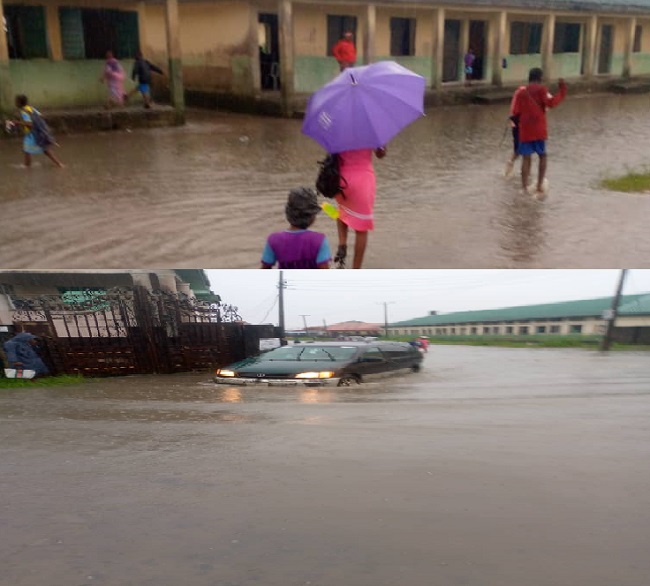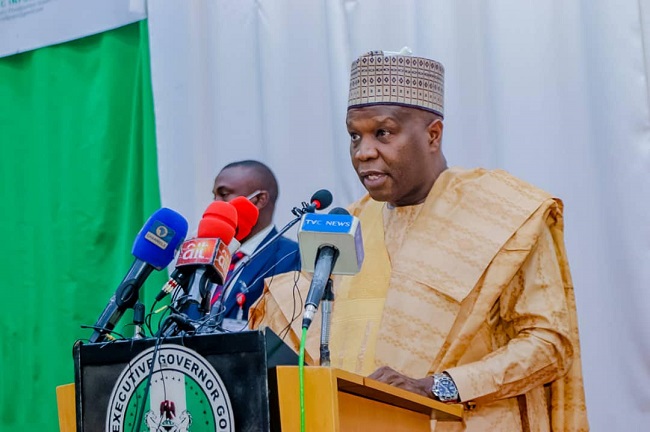Time for African strategies on the great powers?
Relations between Africa and the West have always been strained – complicated by colonialism, slavery, the Cold War and now immigration and the Russian invasion of Ukraine. Africa (collectively) has upped the ante by taking an ambivalent stance on war.
Last week, an Institute for Security Studies (ISS) seminar examined how, despite Europe's commitments at the latest African Union-European Union (AU-EU) summit, Africa with the West are put to the test. And not just by the fallout from the Russian invasion, but also by China's heavy investment and trade with Africa and complications such as migration and populism.
The seminar explored how Africa-West relations could have and be impacted by four global scenarios developed by Jakkie Cilliers, ISS Head of Futures and Innovation in Africa. The scenarios are a divided world, a world at war, a growing world (in which unbridled economic growth trumps all else) and a sustainable world, where growth is conditioned by concern for the environment, including including the fight against global warming.
On the current trajectory, the Divided World scenario appeared the most likely; which means a more fragmented world order and a retreat from a rules-based system. This mainly referred to Russia's war against Ukraine and rising tensions between the West, especially the United States (US) on the one hand, and China on the other. For example, the North Atlantic Treaty Organization (NATO) recently listed Russia and China as first-time adversaries.
In this world of increasing great-power competition, the influence of the United Nations (UN) would further diminish and Africa would suffer, not least through diminished peacekeeping, Cilliers suggested. At worst - especially if the war in Ukraine becomes a wider conflict between Russia and NATO - this scenario could turn into a world at war, which would be devastating for all.
Melanie Müller, senior associate for Africa and the Middle East at the German Institute for International and Security Affairs, said the concept of "the West" had fallen into disuse until Russia invade Ukraine and unite Western countries against war.< /p>
But assessing West Africa relations was nonetheless difficult, according to Paul-Simon Handy, ISS Regional Director for East Africa and the Horn in Addis Ababa, because the two are blocs and not sovereign entities acting in unison. In some cases however, for example in the UN Security Council, their actions suggested that they had some ability to shape international policy.
Handy said the West had dominated international politics for centuries, but was now challenged by the rise of the "so-called Remnant, especially the East". Meanwhile, Africa was still grappling with the difficulties of state building, 60 years later than most countries. became independent.
Handy said that historically and now, relations between Africa and the West have been asymmetrical, which is one of the obstacles to realizing Cilliers' ideal scenario (sustainable world). The war in Ukraine further exposed the differences between the two groups and created more difficulties in realizing this scenario.

Handy described the differences as an opposition between two forms of "narcissism". Western narcissism was characterized by these countries' insistence on seeing their values shared by the rest of the world, "and we see this particularly in the war in Ukraine." African narcissism was "based on colonial resentment combined with a longing for to the monopoly of victimization". Overcoming both would require different and innovative forms of cooperation.
Handy's definitions were instructive. It is true that the West wants to see its values of democracy and human rights adopted by all. F...

Relations between Africa and the West have always been strained – complicated by colonialism, slavery, the Cold War and now immigration and the Russian invasion of Ukraine. Africa (collectively) has upped the ante by taking an ambivalent stance on war.
Last week, an Institute for Security Studies (ISS) seminar examined how, despite Europe's commitments at the latest African Union-European Union (AU-EU) summit, Africa with the West are put to the test. And not just by the fallout from the Russian invasion, but also by China's heavy investment and trade with Africa and complications such as migration and populism.
The seminar explored how Africa-West relations could have and be impacted by four global scenarios developed by Jakkie Cilliers, ISS Head of Futures and Innovation in Africa. The scenarios are a divided world, a world at war, a growing world (in which unbridled economic growth trumps all else) and a sustainable world, where growth is conditioned by concern for the environment, including including the fight against global warming.
On the current trajectory, the Divided World scenario appeared the most likely; which means a more fragmented world order and a retreat from a rules-based system. This mainly referred to Russia's war against Ukraine and rising tensions between the West, especially the United States (US) on the one hand, and China on the other. For example, the North Atlantic Treaty Organization (NATO) recently listed Russia and China as first-time adversaries.
In this world of increasing great-power competition, the influence of the United Nations (UN) would further diminish and Africa would suffer, not least through diminished peacekeeping, Cilliers suggested. At worst - especially if the war in Ukraine becomes a wider conflict between Russia and NATO - this scenario could turn into a world at war, which would be devastating for all.
Melanie Müller, senior associate for Africa and the Middle East at the German Institute for International and Security Affairs, said the concept of "the West" had fallen into disuse until Russia invade Ukraine and unite Western countries against war.< /p>
But assessing West Africa relations was nonetheless difficult, according to Paul-Simon Handy, ISS Regional Director for East Africa and the Horn in Addis Ababa, because the two are blocs and not sovereign entities acting in unison. In some cases however, for example in the UN Security Council, their actions suggested that they had some ability to shape international policy.
Handy said the West had dominated international politics for centuries, but was now challenged by the rise of the "so-called Remnant, especially the East". Meanwhile, Africa was still grappling with the difficulties of state building, 60 years later than most countries. became independent.
Handy said that historically and now, relations between Africa and the West have been asymmetrical, which is one of the obstacles to realizing Cilliers' ideal scenario (sustainable world). The war in Ukraine further exposed the differences between the two groups and created more difficulties in realizing this scenario.

Handy described the differences as an opposition between two forms of "narcissism". Western narcissism was characterized by these countries' insistence on seeing their values shared by the rest of the world, "and we see this particularly in the war in Ukraine." African narcissism was "based on colonial resentment combined with a longing for to the monopoly of victimization". Overcoming both would require different and innovative forms of cooperation.
Handy's definitions were instructive. It is true that the West wants to see its values of democracy and human rights adopted by all. F...
What's Your Reaction?






















